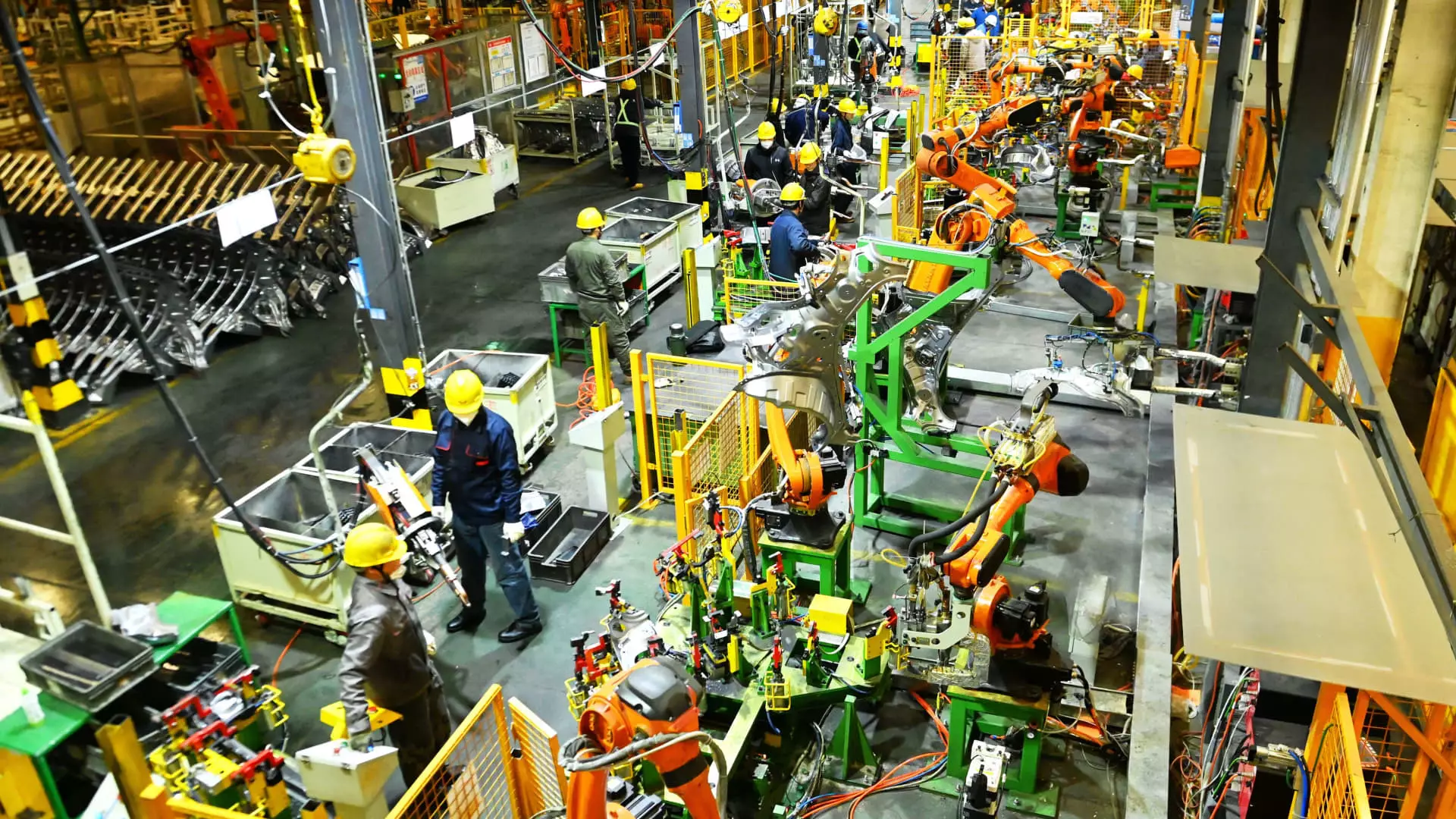The recent whispers around President Trump’s potential exemptions for automakers from certain tariffs illuminate not just administrative indecision but an overarching dilemma—a balancing act between national interests and economic realities. Though the administration’s rationale centers on combatting fentanyl production through trade measures, the implementation of a 25% tariff on auto parts and vehicles reveals a fundamental misunderstanding of the industry’s delicate dynamics. Let’s dissect how these tariffs could be more destructive than protective, especially considering the fragile state of U.S. manufacturing.
Compounding Costs and Compound Problems
Trump’s policies may carry the intention to bolster American manufacturing, yet they often manifest as economic bottlenecks. With automakers already grappling with high prices on essential materials due to previously imposed 25% tariffs on steel and aluminum, another layer of levies might just suffocate the industry. Executives are already sounding alarms—many suppliers are in distress, barely keeping their heads above water. In this scenario, President Trump’s potential exemptions are akin to a band-aid on a deep wound; they do not resolve the underlying issue but merely postpone the inevitable crisis.
The despair is not unfounded. Six major automotive policy groups have united in an unusual display of solidarity, appealing to the administration for relief. This unprecedented collaboration underscores a collective anxiety that such heavy tariffs would sideline America’s automotive capabilities on the global stage. If manufacturers are already strapped for liquidity and unable to shoulder additional costs, the industry’s capacity for innovation and competitiveness diminishes sharply.
A Trade War of Misguided Intentions
Interestingly, Trump’s strategy effectively creates a trade war where the ‘enemy’ is incomprehensibly nebulous. While aiming to secure better trade deals, he risks losing sight of the intricate dependencies between countries in manufacturing chains. The talk of tariff exemptions might give an illusion of flexibility, but it winds up being a case of too little, too late.
The automotive industry does not exist in isolation; it is interwoven with international suppliers and distributors across borders. Therefore, any attempted favoritism or differential treatment may backfire by discouraging foreign investment in U.S. operations. While this sounds like a scenario steeped in nationalist patriotism, the consequences reveal a different narrative—lost jobs and further outsourcing as companies seek to escape the punitive economic climate.
Ceaseless Uncertainty
General Motors CEO Mary Barra has voiced a pressing need—clarity and consistency in regulations. These two pillars are essential for savvy economic planning and investment. So far, Trump’s administration has delivered neither. With constant policy shifts and tariff threats looming, how can OEMs justify investments in new technologies? Uncertainty breeds a stagnant, defensive corporate attitude rather than an innovative spirit.
Sure, some in the Trump administration argue that these tariffs are steps toward achieving “fair trade,” but fair for who? The reality is that a multitude of stakeholders—from manufacturers to end consumers—bear the brunt of these knee-jerk economic maneuvers. Eventually, the burden of these tariffs could trickle down to the average American who may face inflated prices or limited vehicle options as a result.
The High Price of Protectionism
What’s often lost in the conversation about tariffs is the fundamental principle of unintended consequences. The mercantilist approach of shielding domestic industries inadvertently stifles competition, innovation, and consumer choice. Trump’s desire to prioritize “American-made” is commendable, yet protectionism can cultivate a false sense of security. It is imperative to ask ourselves whether coddling certain sectors should occur at such a high economic cost.
If the aim is to create a robust automotive sector that can withstand global competition, it is time to reconsider strategies that hamper in favor of ones that foster growth and innovation. Tariffs that claim to protect American jobs could turn into a thorn in the side of an industry that relies on agility and international collaboration—two qualities essential for survival in a global marketplace.
It is critical that policymakers recognize the multifaceted implications of tariffs and trade decisions, steering clear of short-term solutions in favor of sustainable economic growth that truly benefits all Americans.

